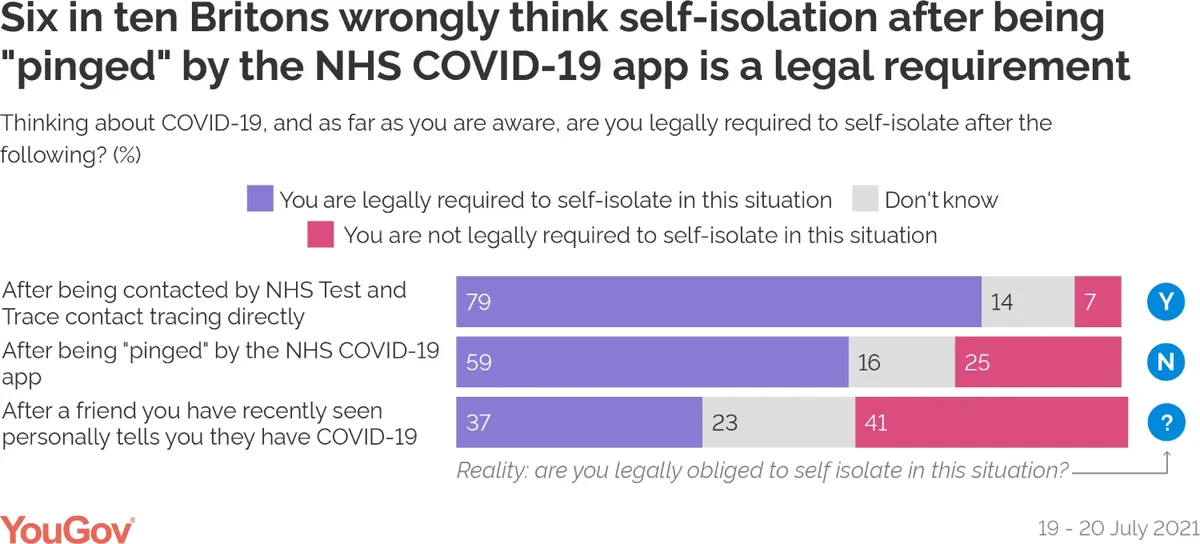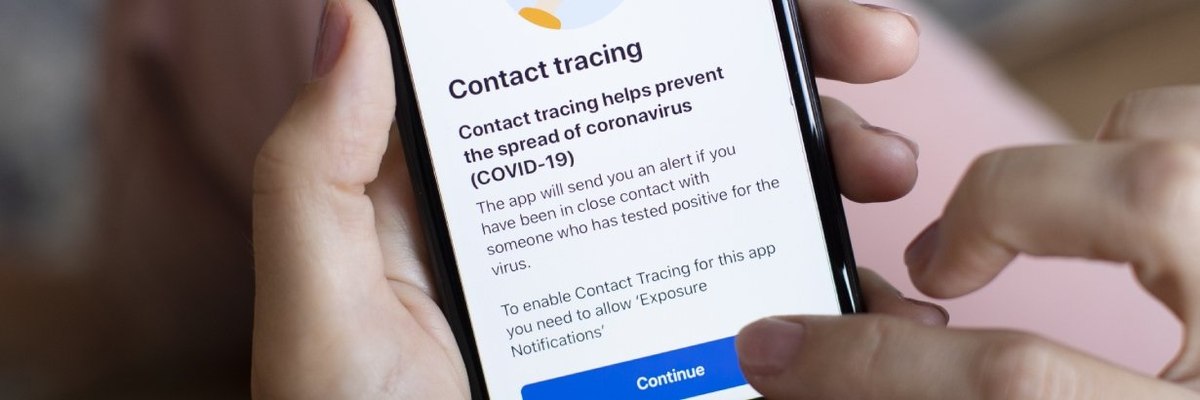Differing rules around the types of self-isolation alerts have caused confusion
With coronavirus cases on the rise, it has been reported that 500,000 people were “pinged” by the NHS COVID-19 app and asked to self-isolate in the first week of July. As workplaces suffer shortages of staff due to self-isolation, the government have been forced to step in to clarify the rules.
Boris Johnson said on Monday that essential workers who were fully vaccinated could avoid the self-isolation period if told to by the app, but new YouGov research shows that confusion remains around the legality of self-isolation.
The government has clarified that self-isolation after being “pinged” by the NHS COVID-19 app is not a legal requirement, however approaching six in ten British people (59%) think that it is. Only a quarter of people (25%) correctly identified that pings from the NHS app are not legally binding.
Those aged 65 and over are the most likely to think that being told to self-isolate by the NHS app is a legal requirement (70%) compared to 48% of 18 to 24-year olds.

The rules around the app stand in contrast to those of the NHS Test and Trace contract tracing system, where a person is legally bound to self-isolate if contacted. Nearly eight in ten people (79%) correctly picked out this situation as a legal requirement, however 7% of people think it is not.
Around a third of people (37%) also think you are bound by law to isolate if someone you have recently seen personally tells you they have had a positive test, which is incorrect.
Would you think differently of those deleting or ignoring the NHS COVID-19 app?
However while many are clearly unsure of the rules around being pinged, YouGov research earlier this week found that many users are disabling or deleting the app entirely, likely to avoid a “ping” and the subsequent self-isolation. How much social stigma is involved in doing so?
The public is split. Two in five people (40%) say they would have a worse opinion of someone if they found they were disabling their NHS COVID-19 app, while 42% would not think differently of them if they did so. However, those aged between 18 and 24 lean more towards ambivalence towards those disabling their app (46%) rather than thinking less of them (30%).
People are more likely to be critical of those who keep the app, but ignore it. Nearly six in ten people (58%) would think worse of someone who was “pinged” by the NHS COVID-app but chose not to self-isolate, compared to 28% who would not think differently of them.
While at least half of all age groups would think worse of those ignoring an alert to self-isolate, among those 65 and over this negative sentiment towards those ignoring a ping rises to 70%.
See full results here












